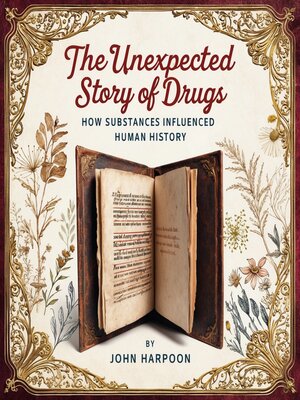
Sign up to save your library
With an OverDrive account, you can save your favorite libraries for at-a-glance information about availability. Find out more about OverDrive accounts.
Find this title in Libby, the library reading app by OverDrive.



Search for a digital library with this title
Title found at these libraries:
| Library Name | Distance |
|---|---|
| Loading... |
Throughout human history, substances have shaped the course of civilizations, influencing not only individual lives but entire societies. From the sacred plants used in ancient religious rituals to the drugs that sparked global trade and conflict, substances have been at the center of some of the most transformative events in human history. These substances—whether natural or synthetic—have impacted cultures, economies, medicine, and politics in ways that continue to reverberate today.
The use of psychoactive substances is as old as human civilization itself. In ancient times, plants like opium, cannabis, and peyote were not only used for their mind-altering properties but also for their spiritual significance. Shamanistic rituals, often involving trance-like states induced by these substances, were common across many early societies. These practices tied substances to deep spiritual experiences, leading to the belief that these plants had a divine or otherworldly power.
As civilizations grew, so did the complexity of their relationship with drugs. The Egyptians, Greeks, and Romans all had distinct approaches to substances, incorporating them into everything from medicine to social rituals. The introduction of alcohol as a staple in religious ceremonies and social life further solidified the role of substances in the daily lives of these societies. At the same time, substances like opium were recognized for their medicinal value, setting the stage for the eventual development of the pharmaceutical industry.







